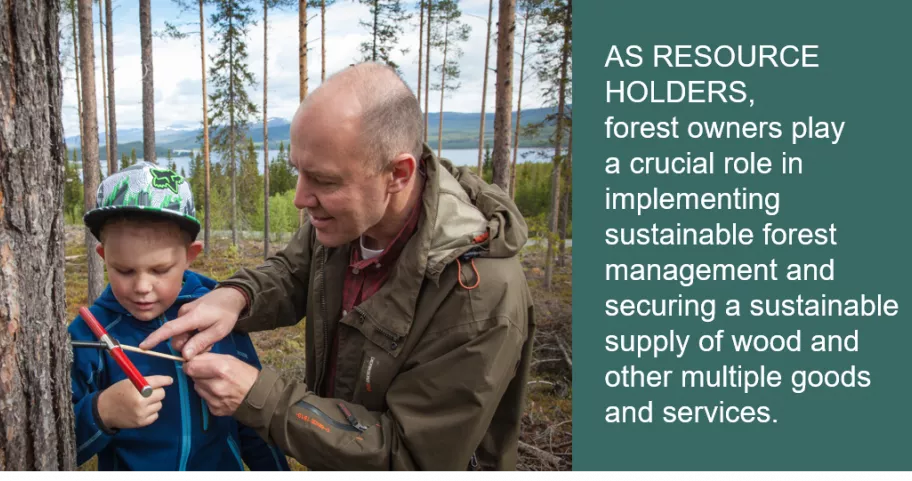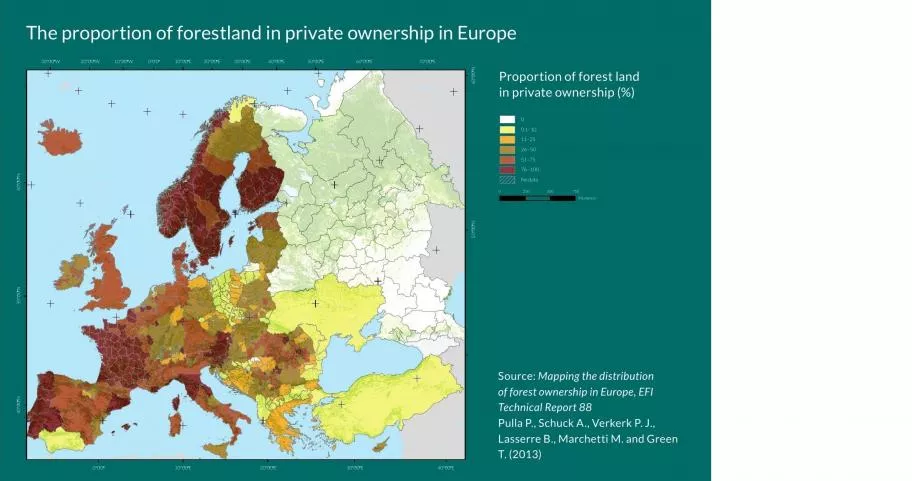Multifunctional European forests – A growing resource in responsible hands
Forests cover about 40% of Europe’s territory and contribute significantly to the social, economic and environmental well-being of Europe. While providing some 4 million jobs and a sustainable source of timber for the forest based industries, European forests deliver multiple goods and ecosystem services, including drinking water, clean air, CO2 sequestration and recreation areas. In addition, forests contribute fundamentally to sustaining biodiversity, mitigating climate change and enhancing rural development.

The concept of private forestry refers mainly to small-scale forestry, which is often based on personal involvement and strong stewardship values, and is demonstrated through multiple-use forest management. Though most of the forestland in Europe is privately owned, the structure of private forest ownership is specific and varies considerably from country to country. Forest properties range from 0.5 hectare to more than 10 000 hectares in size. The average size of a private forest holding in the EU is about 13 hectares. However, the majority of private owners, approximately 2/3, have holdings of less than 3 hectares.

Sustainable Forest Management
The concept of Sustainable Forest Management has been defined under the Pan-European FOREST EUROPE process, along with guidelines, criteria and indicators for sustainable forest management. These are in turn implemented in the European countries, adapted to their national circumstances. Today in Europe, there is a comprehensive framework in place to safeguard the principles of Sustainable Forest Management, ranging from regional and national to EU and global level instruments.

